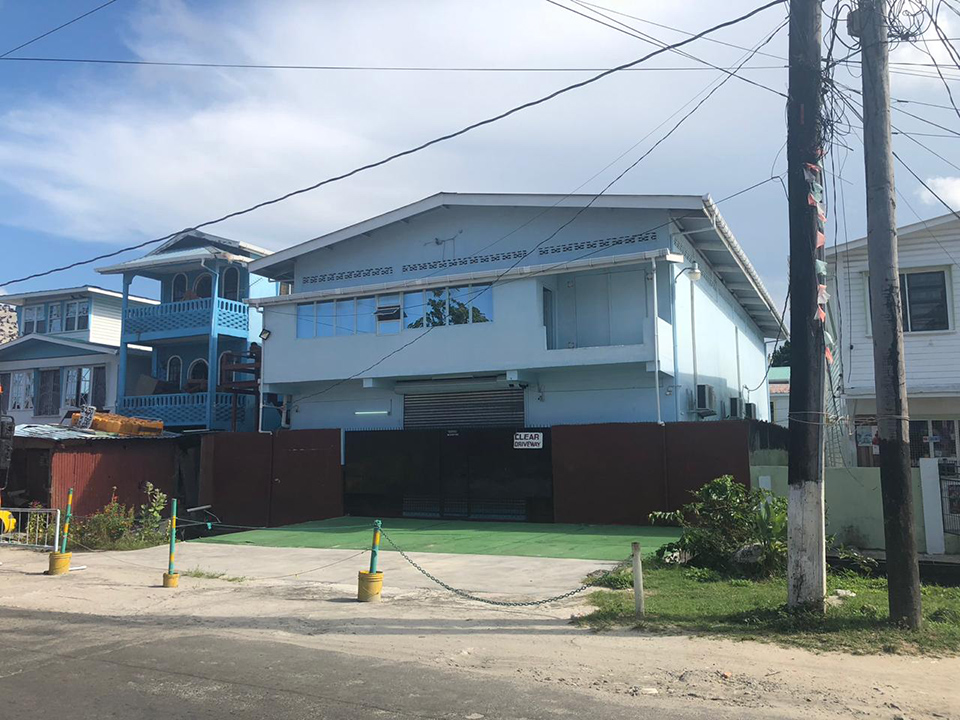Larry Singh, the owner of the drug bond on Sussex Street that the government was renting in a controversial deal, has admonished Prime Minister (PM) Moses Nagamootoo for “misleading” comments on the building.
Nagamootoo had described the Sussex Street bond as “more or less a house that was converted into a bond” but Singh, in an ad published in Stabroek News yesterday, said that the building was never a house and it met the rigorous measures required for storing medical supplies.
In the ad, headlined ‘Notice to Moses Nagamootoo to cease and desist from making statements that you cannot support’, Singh responded to Nagamootoo’s comments, made at the commissioning of the Ministry of Public Health’s drug bond in Kingston on Wednesday.
The Prime Minister had spoken about the APNU+AFC government’s prior usage of a private bond on Sussex Street at a cost of $12.5 million per month. Controversy had raged about the rental of the bond, which was secured without public tendering.
Seeking to explain why the government was forced to use the bond, Nagamootoo said that in 2015, when the coalition government started its tenure, it was confronted with a situation where it had a find a new bond “and to find a bond quickly.”
“So we were using for one of the locations, a bond belonging to the New GPC, a private outfit, and we were informed that the proprietors wanted their bond back and in a hurry. I spoke to Dr Bobby Ramroop and said ‘please, we would be in a problem trying to find a location in short notice to store our pharmaceutical supplies.’ I pleaded with him if he could make available a piece of his bond,” Nagamootoo had said.
He recalled that he received letters from Ramroop, who, explaining the measurements of the place, said that he needed the space for imports and couldn’t made any available for storage by the government.
“And I am telling you this because there is a part of history that you must know. That it is out of necessity, absolutely necessity, when we were pushed against the wall that we had to find a storage place for our medical supplies. We found a place and there was a big controversy that you know referred to as the Sussex Street bond, more or less a house that was converted into a bond because we had to store our supplies somewhere,” Nagamootoo said.
He added that when “the newspapers started to hit at the government that we had gotten a bond that wasn’t fit for a bond,” they accepted that it was what they could’ve settled for at short notice and that it wasn’t the best of deals.
“It wasn’t then and still isn’t and that is why it was cancelled. The question is what do we do, a decision had to be made to find an alternative site for a bond and I want to give credit to Minister Lawrence,” Nagamootoo added.
However, according to Singh, he is not aware that Nagamootoo had ever visited the bond or checked what the building was before it became a drug bond. In the ad, Singh said that the PM is in no position to contradict Minister of Public Health Volda Lawrence as to the suitability of the building as a bond.
“First of all, the Sussex Street bond was never a house, it was “fit and proper” for a pharmaceutical bond as per the Minister of Health Volda Lawrence in Parliament on 29th June, 2018, “the expensive piece of equipment (CT scanning machine) requires stringent specifications for stage” and according to the Minister, the bond fits these requirements,” Singh said.
He dared Nagamootoo, the government and the public to conduct a comparison between the Sussex Street bond and all the government-owned bonds, using all of the World Health Organization’s requirements, including the temperature maintenance requirements, fire sprinkler, accessories, cold storages and the forklift that is required for use in a drug bond, and to officially publish the result.
“I have been in business in excess of 40 years, the opinions you have expressed about my experience and the suitability of the bond are political rhetoric rather than fact. You are well aware about my vast business experience and has in fact personally benefitted from my largesse as a result of these businesses,” Singh said.
“I truly hope, this is not a political stunt, or a way to get votes because your words are misleading,” he added.
The bond was being rented at a cost of $12.5 million per month, which resulted in prolonged controversy before the government finally decided to end the contract.







